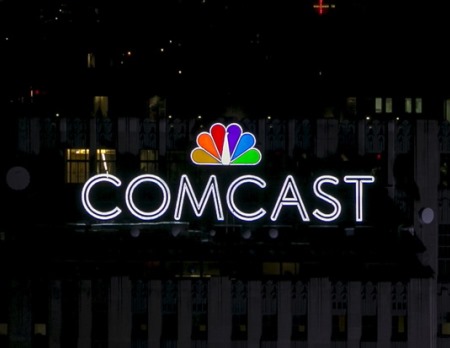Comcast 10-Q Hints At Auction Bid
The smarter way to stay on top of the multichannel video marketplace. Sign up below.
You are now subscribed
Your newsletter sign-up was successful

Comcast could have its eye on as much as 30 Megahertz of wireless licenses in the upcoming federal incentive spectrum auctions, based on a line item buried in its third quarter financial statements filed with the Securities and Exchange Commission.
In its most recent 10-Q filing with the SEC, Comcast revealed it made a $1.8 billion deposit, that many analysts believe point to its further participation in the incentive auction.
The item was under the heading “Investment Activities” in the 10-Q. While the company offered no explanation in the document just what that deposit was for, investors noted the timing and the requirement that bidders in the formal auction submit a deposit before being allowed to bid. Deposits were due July 1, meaning that they would show up in Q2 or Q3 reports.
Based on the size of the deposit, several analysts determined that Comcast could bid for roughly 30 Megahertz of wireless spectrum. That is higher than previous estimates that Comcast would bid for between 10 MHz and 20 MHz of spectrum. AT&T and T-Mobile also made deposits $2.4 billion and $2.2 billion, respectively, which would make them eligible to bid on about 40 MHz each. Dish Network, which already owns about 40 MHz of mid-band spectrum, hasn’t reported yet.
In a blog post, MoffettNathanson principal and senior analyst Craig Moffett wrote that the deposits are refundable, meaning that Comcast can back out of the auction process if it wants. While most expect the nation’s largest cable operator to at least try to acquire some of the spectrum being offered, what was more surprising is that Verizon Communications, the largest wireless company in the country with more than 113 million customers, apparently isn’t participating at all.
With no deposit item on their Q3 balance sheet, Verizon appears to be passing up the auction process, a surprising move given the overall need for more capacity. In his report, Moffett noted that it could mean a shift in strategy.
While it is still pure speculation – participants are federally prohibited from commenting on the auction process – Moffett wrote that it could mean Verizon is taking a pass on the auction and instead focusing on possibly buying Dish Network’s spectrum holdings. Or, he added, it could mean they feel that they have enough spectrum already and don’t need to buy more.
The smarter way to stay on top of the multichannel video marketplace. Sign up below.
“Occam’s razor would suggest the latter interpretation, but we suspect most observers will infer the former instead,” Moffett wrote. “After all, regardless of which interpretation is right, the former is undeniably more fun.”
In his own blog post BTIG telecom analyst Walter Piecyk agreed that a deposit alone doesn’t mean Comcast will actually make bids. But he did believe it was curious that Comcast, which plans to offer a wireless product in mid-2017 as part of its MVNO agreement with Verizon, felt it necessary to make a deposit at all. Add the fact that AT&T’s DirecTV Now over-the-top offering has the potential to be a major disruptor, and the possibility of increasing its spectrum buy become even more interesting.
“…given management’s insistence on the benefits of executing a resale strategy for wireless, it should certainly raise some eyebrows as to why they would qualify to bid for that much spectrum,” Piecyk wrote. “Keep in mind that this payment was made less than four months ago. As we all await the details of AT&T’s DirecTV Now offering, the flexibility provided by that deposit offers, might come in handy.”
